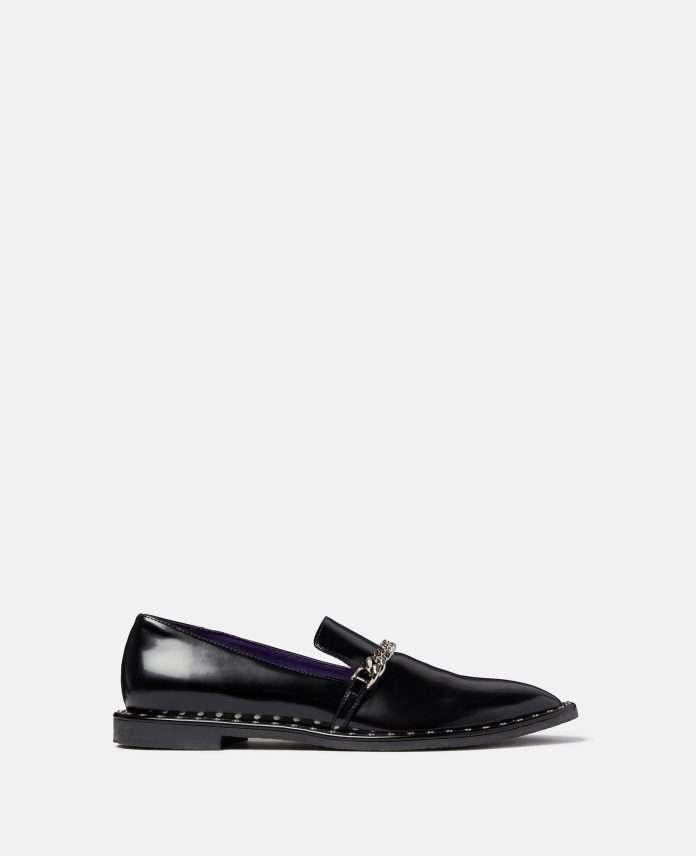If there’s one thing we absolutely are sure about for 2024, it’s that loafers are definitely the shoe of choice. Get the look without the leather with these eco women’s loafers made from sustainable materials.
Women’s loafers have stood the test of time, continuously emerging as a symbol of both sophistication and comfort. From their inception as casual attire to their ascent as an icon of chic office wear, these versatile shoes have proven indispensable in the modern woman’s wardrobe. The loafer’s enduring appeal lies in its elegant design and the ease with which a pair can bridge formal and casual settings, making them a perennial favorite among fashion enthusiasts.
The timeless appeal of loafers
Loafers trace their origins to the traditional moccasin footwear of Native Americans. In the early 20th century, this slip-on style was adapted into a casual shoe for men, evolving into the loafer we recognize today. By the mid-20th century, women began incorporating loafers into their wardrobes, attracted by the blend of smart appearance and unmatched comfort. Rapidly, these shoes transcended their initial casual boundary, gaining favor in formal settings as well.
In the landscape of women’s fashion, loafers stand out for their adaptability. The sleek, laceless design offers a polished look that pairs effortlessly with various outfits, from tailored trousers to flowing skirts. The absence of fastenings provides ease of wear, while sturdy soles contribute to lasting durability. The defining feature, a low heel, ensures all-day comfort, making loafers an indispensable part of any ensemble. Skilled artisans over the decades have honed the art of loafer craftsmanship, bringing precision and elegance to each stitch and seam.
Through time, the loafer has been reinvented with materials ranging from glossy patent leathers to softer suedes to more modern lower impact materials like cactus leather and even canvas. Design innovations have included tassels, buckles, and metallic hardware, contributing to the shoe’s evolution yet always anchored by its classic, minimalist roots. This balance of aesthetic flexibility and elegance cements the women’s loafer as a timeless wardrobe essential for fashion-conscious individuals who prize both sophistication and practicality.
Eco-friendly materials in loafers
Sustainable fashion pioneers have embraced a variety of innovative materials for crafting eco-friendly women’s loafers. Recycled rubber serves as a durable and flexible option for soles, diverting waste from landfills and reducing the demand for new, raw materials. Organic cotton works splendidly for inner linings, ensuring breathability and comfort without the harsh environmental impact associated with traditional cotton cultivation.
Further in this realm, Piñatex, a material derived from pineapple leaves, offers a striking leather alternative that impresses with its texture and resilience. As leather lookalikes go, microfiber vegan leather also stands out, both for its likeness to genuine leather and for its low environmental footprint.

Enterprises today utilize recycled plastics for loafer components, transforming discarded bottles into fashionable footwear. This practice underscores a commitment to cutting down ocean and landfill waste. Moreover, some brands have innovated with biodegradable shoes, designed to decompose after their usable life, curbing the accumulation of non-biodegradable refuse.
The edge these materials have over conventional ones extends beyond ecological benefits. They often entail fewer toxic chemicals, presenting health advantages for both the artisans who craft them and the end-users. With heightened awareness of the materials’ origins, customers gain a deeper appreciation for their purchases, tying comfort and style to conscientious living.
Luxury meets responsibility
Luxury fashion labels are taking significant steps toward sustainability, weaving environmental responsibility into their exquisite loafer collections. Brands are now recognizing the need to balance opulence with ecological sensitivity and are adopting innovative measures to this effect. Materials such as biodegradable leather, recycled fibers, and cruelty-free textiles are used to craft women’s loafers that stand the test of fashion without conceding to environmental degradation.
One trailblazer in this arena is Stella McCartney, whose commitment to sustainable fashion is well established. The label’s loafers are a testament to its dedication, employing vegetarian leather and recycled materials. Such commitment reflects a broader shift among prestigious brands to prioritize the planet without compromising on style.
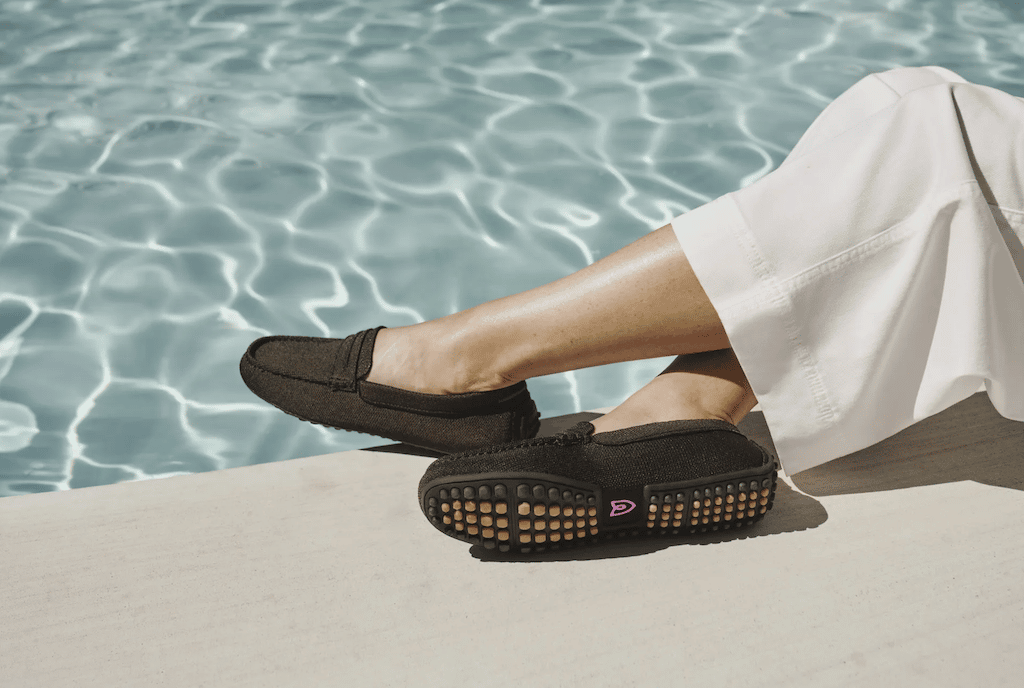
Another brand that exemplifies this commitment is Rothy’s, which transforms recycled plastic bottles into elegant, durable loafers for women. Rothy’s integrates eco-friendly practices into every stage of production, championing a zero-waste philosophy.
Allbirds showcases its innovative use of natural materials like eucalyptus pulp, striving to minimize carbon footprints with its sleek, comfortable loafers. This brand stands out for its dedication to carbon neutrality, leading by example in the luxury footwear market.
These brands represent a vanguard in the luxury footwear industry, demonstrating that sustainable women’s loafers can be as stylish as they are eco-conscious. They signal a future where luxury and environmental stewardship coexist harmoniously, offering consumers fashion-forward options that align with their values.
Ethical production techniques
Ethical production stands as a cornerstone in sustainable fashion, demanding attention to the welfare of both the environment and the workforce. In creating women’s loafers that align with these values, brands take a proactive stance. They scrutinize their supply chains, ensuring that materials come from responsible sources and that each pair of loafers reflects a commitment to minimal environmental harm.
Artisans who make these shoes often work in safe, fair conditions, receiving appropriate wages for their skilled labor. This human-centric approach extends beyond the factory floor, influencing the communities involved. Sustainable practices in producing loafers include using eco-friendly dyes, reducing water waste, and minimizing energy consumption throughout the manufacturing process. The focus is on creating high-quality, durable products that stand the test of time, rather than contributing to the fast fashion cycle.
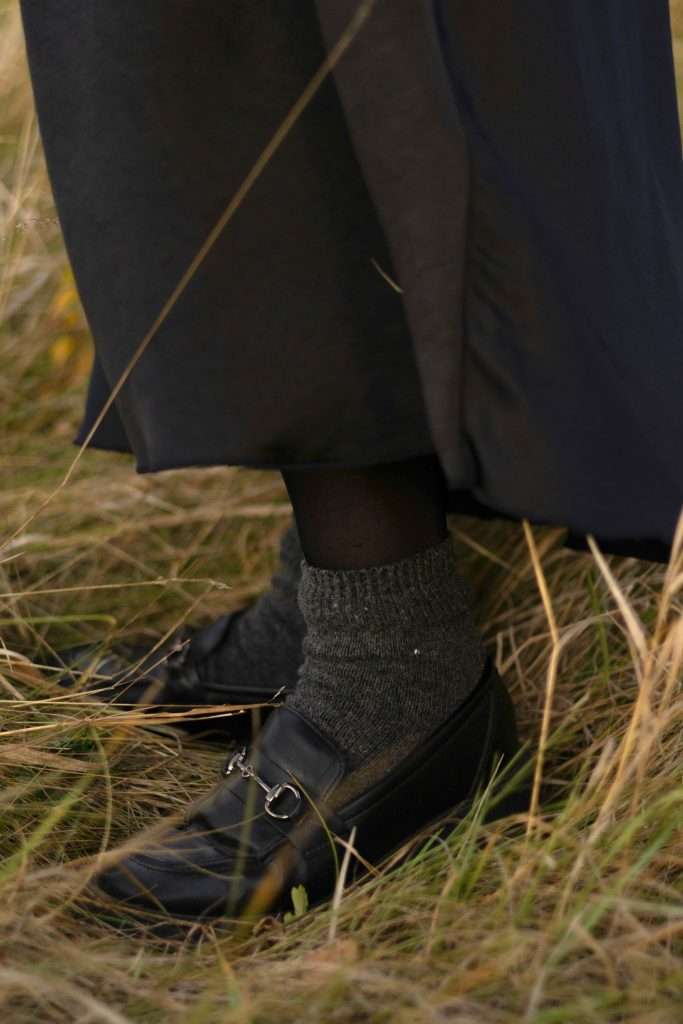
Diligence in crafting loafers with an eco-conscious mindset also encompasses end-of-life considerations. A sound ethical production strategy embraces the concept of a circular economy. Manufacturers design loafers so they can be easily disassembled and recycled, or they prioritize biodegradable materials that won’t linger indefinably in landfills. Such meticulousness not only honors the environment but also sets an admirable standard for footwear manufacturing.
How to choose sustainable women’s loafers
To make informed decisions when shopping for eco-friendly women’s loafers, scrutinize the sustainability claims of each brand. Assess the materials used; opt for loafers crafted from organic or recycled fabrics, and sustainable alternatives to leather. Search for certifications from reputable organizations such as the Global Organic Textile Standard (GOTS) or the Leather Working Group (LWG) to authenticate the eco-friendly credentials.
- Examine Materials: Investigate the construction details, prioritizing shoes made from renewable resources like cork, bamboo, or ethically sourced wool. Shoes labeled as biodegradable or made with plant-based materials are also preferable.
- Production Process: Consider the manufacturing process. Brands transparent about their production methods, emphasizing reduced water usage and energy efficiency, align more closely with sustainable practices.
- Brand Ethics: Research the brand’s ethical stance. Support companies that are committed to fair labor practices, ensuring their workforce is treated with respect and paid fairly.
- Quality Craftsmanship: Check for superior craftsmanship. Durable shoes with high-quality construction reduce long-term waste, as they won’t need to be replaced as frequently.
- End-of-Life: Look into the end-of-life options for the loafers. Brands with recycling programs or that create shoes that are easily disassembled for recycling contribute to a circular economy.
- Repair Services: Give preference to brands that offer repair services. This extends the lifespan of the footwear and reflects a commitment to sustainability.
Staying informed and demanding higher standards from manufacturers will lead to more sustainable choices and a smaller carbon footprint in your fashion ensemble.
Women’s loafers care and maintenance
Looking after women’s loafers diligently extends their lifespan and supports a more sustainable approach to fashion. Regular maintenance ensures sustainable materials maintain their quality and continues to embody the principles of slow fashion.
Engage in zero-waste practices by giving your shoes the care they deserve, augmenting the durability of sustainable materials. This approach not only preserves the aesthetic appeal but also upholds the ethos of conscious consumption.
- Clean Regularly: Keep loafers free of dirt and dust by wiping them with a soft, damp cloth. For more persistent stains on sustainable materials, use cleaners specifically designed for use on the type of material your loafers are made from.
- Safe Storage: Avoid excess moisture and direct sunlight when storing loafers. Use a shoe tree or stuff shoes with paper to maintain shape and absorb any internal moisture.
- Alternate Usage: Extend the life of your loafers by not wearing the same pair every day. Rotating between different shoes allows each pair to breathe and recover from wear.
- Protective Treatments: Apply water or stain repellents that are environmentally friendly to safeguard loafers from the elements. Such treatments help preserve the shoes while being considerate of the planet.
- Mindful Repair: Don’t discard your beloved loafers over minor damage. Seek out cobblers who can mend shoes or DIY smaller fixes, keeping them in rotation for longer.
Comprehending the value of your eco-friendly shoes transcends simple aesthetics. It’s about acknowledging the meticulous craftsmanship and the sustainable resources that went into creating such pieces. Adequate care represents a continuation of the commitment to cruelty-free fashion and intentional choices that favor ethical brands and lessen green fashion’s environmental impact.
Eco women’s loafers
This thoughtful selection of women’s loafers can meld style with a commitment to sustainability. Choosing shoes crafted from eco-friendly materials, such as recycled fabrics or biodegradable alternatives to traditional leather, allows for a fashionable statement that aligns with your values.
Looking beyond the label, consumers should seek out loafers from ethical sources, ensuring that their purchases support responsible manufacturing where workers’ rights are respected and environmental impact is minimized. Opt for handcrafted shoes that promote slow fashion, and engage with brands that actively work to reduce their carbon footprint. These choices contribute to a movement toward cruelty-free fashion, pushing the industry towards more ethical standards.
Ultimately, every step taken in eco-chic loafers can be a reflection of personal values, a small yet meaningful act in mitigating fashion’s impact on the environment. Embrace this harmony of comfort and conscience, stepping forward with a sense of responsibility and a style that celebrates sustainable choices.
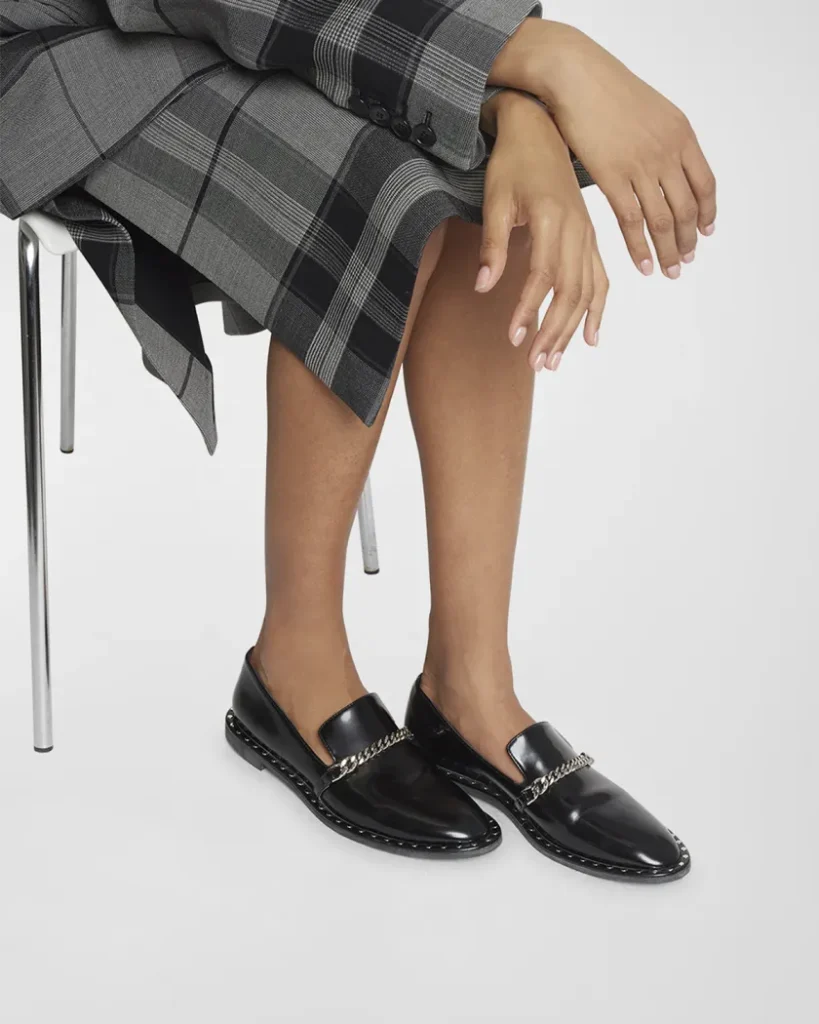
Stella McCartney Falabella Loafer
Known for her commitment to ethical design and humane principles, Stella McCartney offers vegan loafers. These sleek Falabella loafers come in white or black and feature signature chain detailing from the iconic Falabella range. They’re made in Italy without any leather and fit like a dream.
$860 at Stella McCartney
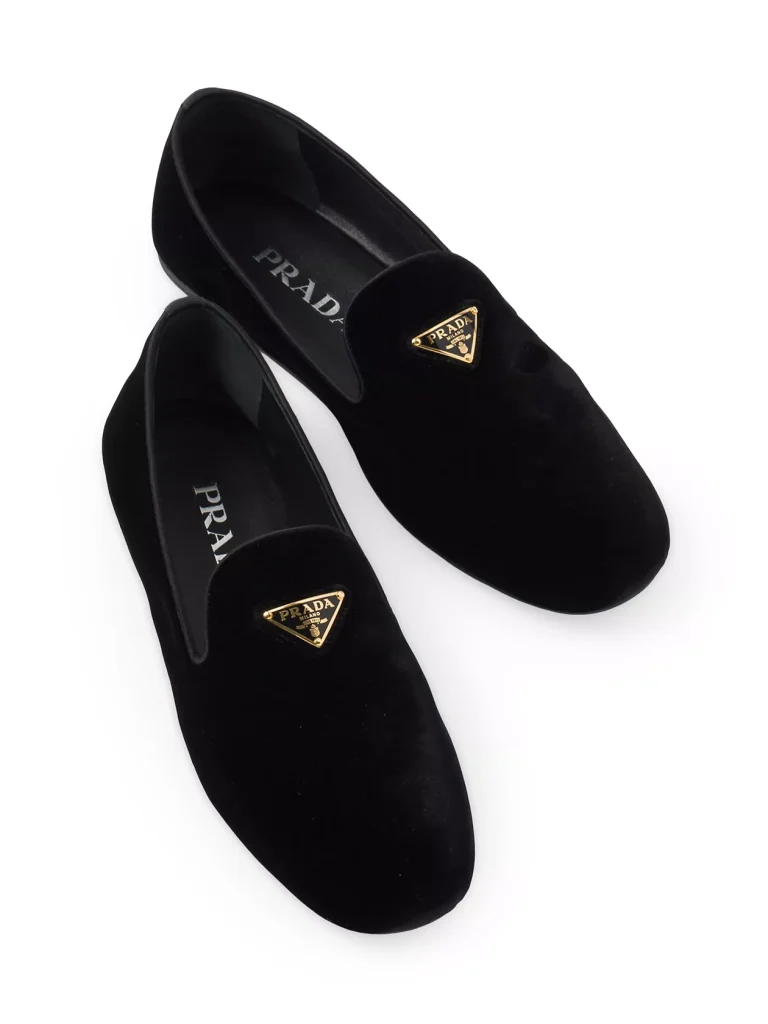
Prada Velvet Loafer
These leather-free velvet Prada loafers redefine the classic shoe. Designed with rubber soles for quiet comfort, you’ll want to wear these every day and in every way. Prada’s commitment to recycled nylon will make every step feel even more comfortable, too.
$1,270 at Saks Fifth Avenue
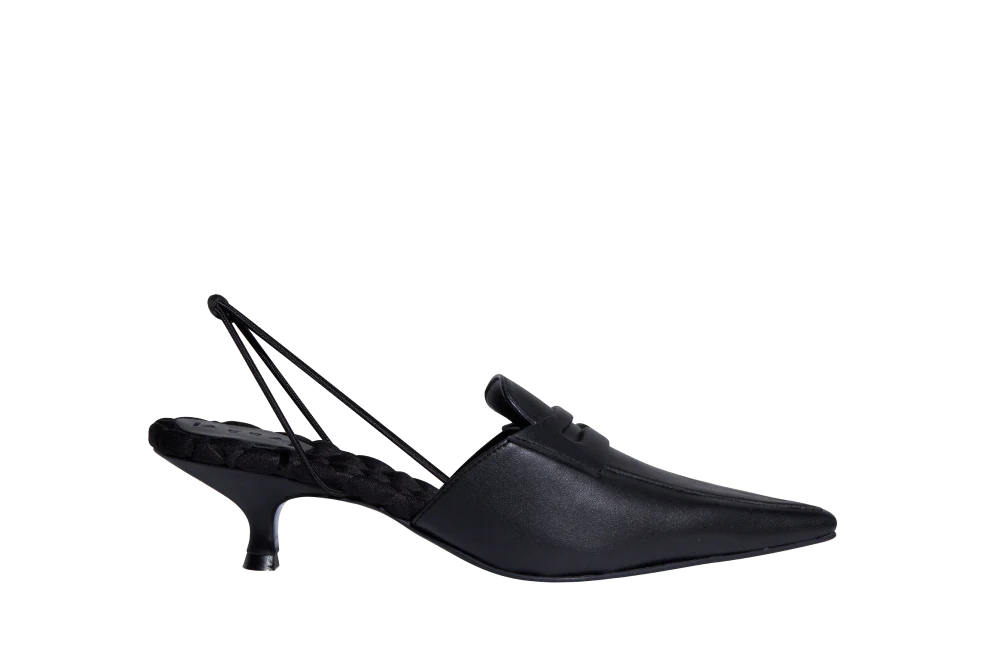
Aera Grace Slingback Loafer
A little twist on the loafer is this stunning kitten-heel slingback loafer from Aera. Handmade in Italy from bio-based materials, recycled polyester, and eco Thunit rubber, these shoes are a nod to style icon and Alfred Hitchcock’s favorite muse, the late Academy Award-winning actor and Princess of Monaco, Grace Kelly.
$545 on Alltrueist
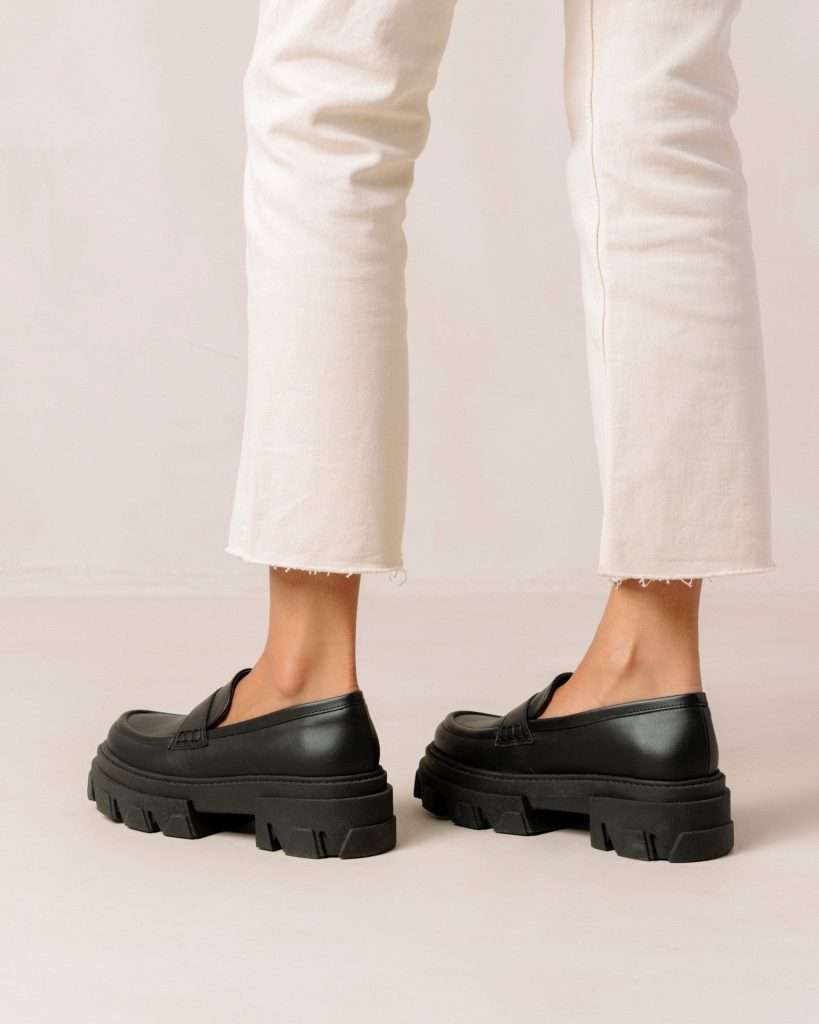
Alohas Trailblazer Corn Leather Loafers
Made from corn leather, these Alohas loafers are sure to be a regular in your wardrobe with their classic design and chunky heel. The brand, loved by celebrities like Alicia Silverstone, is committed to clean ingredients for a more sustainable industry and with accessible pricing, they’re made for every budget.
$55 at Alohas
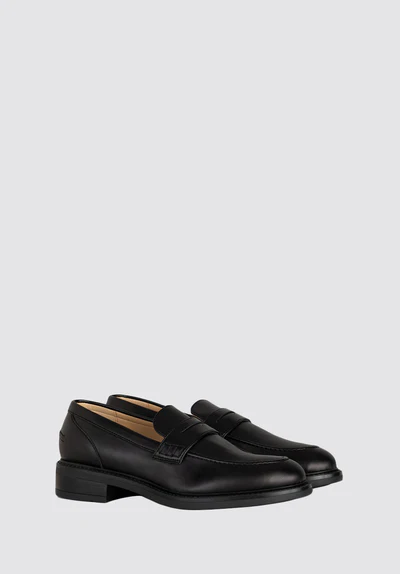
Solari Milano Corn Leather Loafers
These sexy hand-stitched loafers from Solari Milano are made from corn and bamboo leather as well as recycled rubber for an elegant and timeless look.
$225 at Alltruest
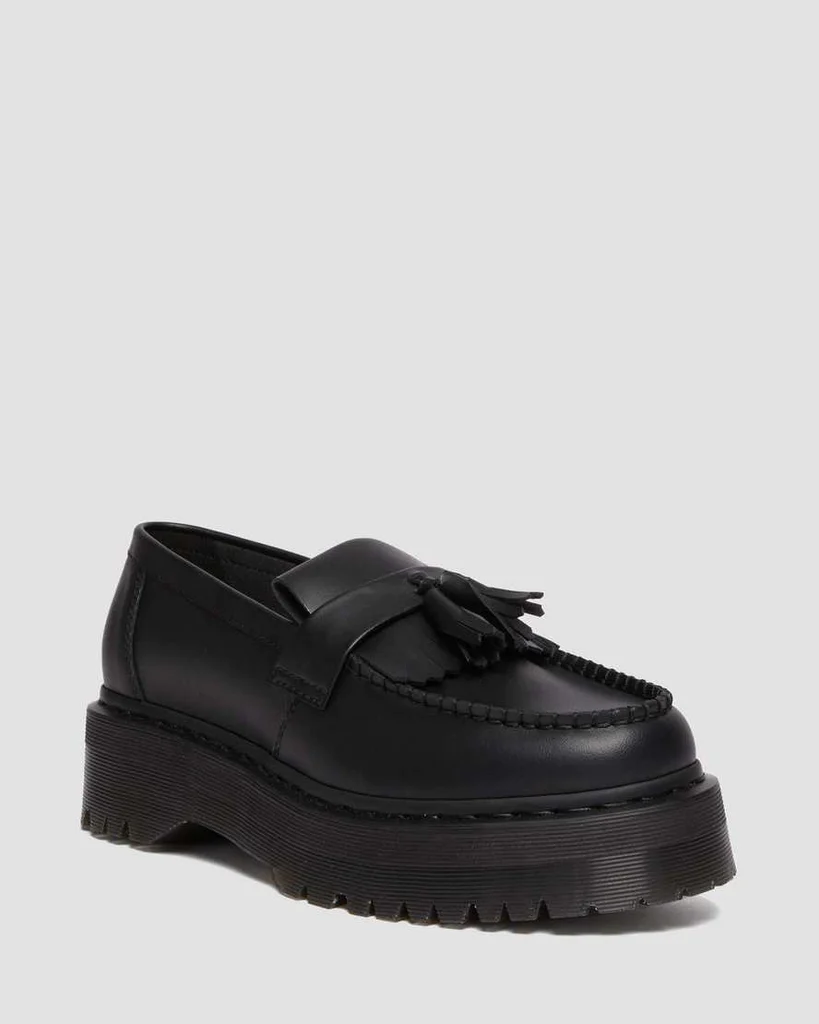
Dr Martens Vegan Adrian Quad Mono Platform Loafers
A retooling of the classic Quad loafer from iconic label Dr. Martens, this version gets a vegan leather makeover with Felix Rub-Off, the label’s go-to leather replacement. The tassel keeps it classic but the stacked platform heel gives an elevated mod look to dress up or down.
$180 at Dr Martens
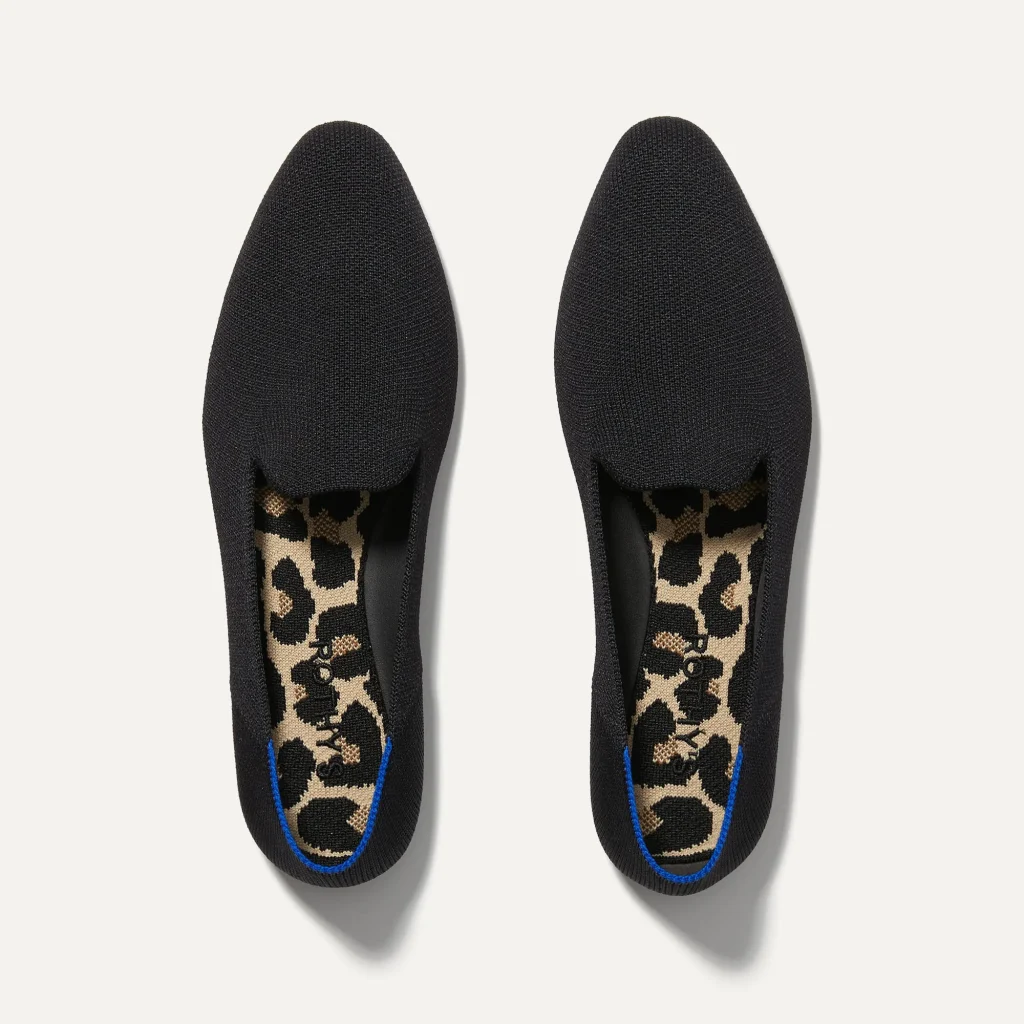
Rothy’s Almond Loafer
Made from Rothy’s signature upcycled plastic bottle thread (about 9 bottles for the pair), these roomy and sleek loafers are made for comfort. Be warned, though; the label’s zero-waste sustainability commitment will put an extra spring in your step.
$179 at Rothy’s
Related on Ethos:
All products featured on Ethos have been independently selected by our editorial team.
When you buy something through our links, Ethos may earn an affiliate commission.

